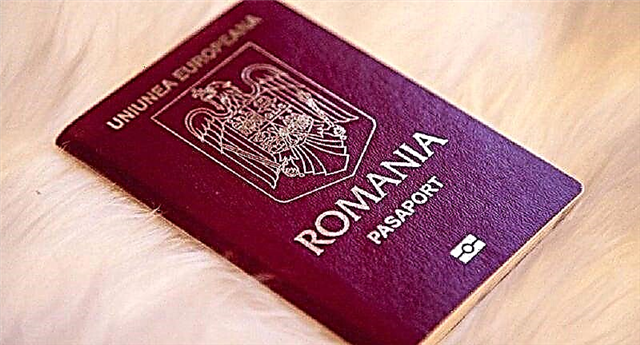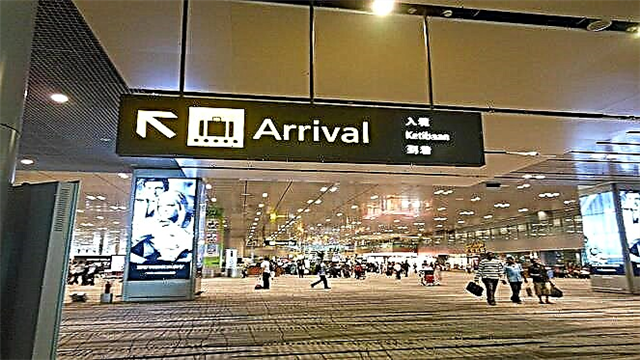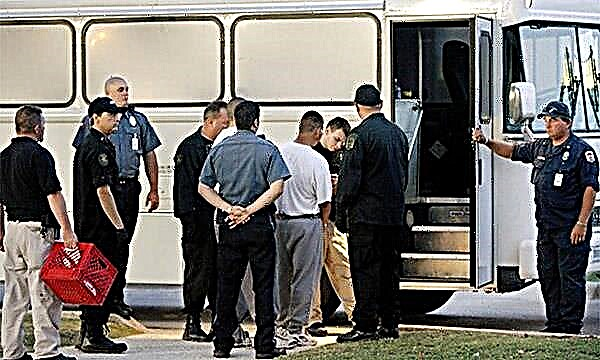Millions of foreigners come to Russia every year to find work. Some of them are committing offenses. One of the state's responses to this is through the use of deportation or expulsion procedures. What are the features of each of the procedures and what is the difference between them? Not every migrant, and even a Russian, can say what are the differences between expulsion and deportation, although they are quite significant. This is covered in this article.

Deportation concept and grounds for application
Let's start with the terms and find out what expulsion and deportation are. The definition of the second concept is contained in the Federal Law of 25.07.2002 No. 115-FZ "On the Legal Status of Foreign Citizens in the Russian Federation". In accordance with the specified normative act, deportation is one of the mechanisms through which the state fights illegal migration.
The procedure is the forced expulsion of a foreign citizen from Russia in the event that he has no legal grounds for staying here.
A ban on staying in the Russian Federation can be imposed on the violator of the migration regime in the following cases:
- There is no issued work permit - for foreign citizens from states with which the Russian Federation has a visa regime.
- There is no residence permit or temporary residence permit for persons who are trying to obtain Russian citizenship.
- There is no labor patent or its validity period has expired - for foreign citizens from states with which the Russian Federation has established a visa-free regime.
- The end of the statutory periods of stay in the Russian Federation or an expired visa - for all other categories of persons.
Failure to comply with the above conditions is the basis for the application of the procedure for the deportation of a visitor. It is not a punishment, it is just one of the ways to protect the state from such a phenomenon as illegal migration.
The concept of expulsion and the grounds for its application
To understand how deportation differs from expulsion from the country, you need to find out what constitutes expulsion.
The definition of this term is contained in article 3.10 of the Code of Administrative Offenses. This is a type of administrative responsibility, which consists in the forced movement of foreigners who have committed certain offenses across the state border of Russia or in the voluntary controlled departure of such migrants outside the Russian Federation. That is, expulsion is a measure of responsibility / punishment for violation of the law, the procedure for its application is described in detail in Art. 34 of the Federal Law “On the Legal Status of Foreign Citizens in the Russian Federation”.
Reasons for forced expulsion may be:
- violation of the established procedure for crossing the border;
- violation of the regime of stay in the country;
- sale, storage, transportation of narcotic substances;
- non-execution of already assigned administrative penalties and other administrative offenses.
"Each coin has two sides", let's try to determine the similarities and differences between deportation and administrative expulsion.
Distinctive properties can be formulated as follows:
- deportation is a way to control migrants, expulsion is a type of punishment;
- the first procedure is most often carried out voluntarily, the second is compulsory.
The similarity lies in the final result: a visiting citizen, in any case, must leave the borders of Russia.
Which body decides on deportation / expulsion
 Control over the number of migrants and their stay in the country is entrusted to the Main Directorate for Migration Issues of the Ministry of Internal Affairs of the Russian Federation (formerly the FMS). It is in this department that a database has been formed and is constantly being updated, where all information is entered about the periods of stay in the Russian Federation allowed to each visitor, as well as about their patents and work permits. Therefore, the final decision on the regime of stay and, as a consequence, the likelihood of deportation is made by the divisions of the Main Directorate of Internal Affairs of the Ministry of Internal Affairs.
Control over the number of migrants and their stay in the country is entrusted to the Main Directorate for Migration Issues of the Ministry of Internal Affairs of the Russian Federation (formerly the FMS). It is in this department that a database has been formed and is constantly being updated, where all information is entered about the periods of stay in the Russian Federation allowed to each visitor, as well as about their patents and work permits. Therefore, the final decision on the regime of stay and, as a consequence, the likelihood of deportation is made by the divisions of the Main Directorate of Internal Affairs of the Ministry of Internal Affairs.
It is worth emphasizing that expulsion is a type of punishment that is associated with the temporary deprivation of a person of one of his fundamental rights - the right to freedom, including movement, therefore, such decisions are only empowered to be made by the courts. And the organs of the Main Directorate of Internal Affairs of the Ministry of Internal Affairs should already control their execution.
How expulsion and deportation are carried out
Both of these procedures are characterized by the fact that foreigners who have arrived in Russia leave its territory on the basis of decisions of the competent authorities. In order to save state resources, in both cases the migrant is invited to voluntarily leave the country. And only if this does not happen, the person will be forcibly evicted from the Russian Federation.
What is voluntary departure outside Russia
The most reasonable choice in the event that a citizen of another state has been issued an official order to leave the borders of the Russian Federation is to leave. In case of voluntary departure due to deportation and expulsion, the difference will be that in the first case the foreigner leaves the country himself, that is, without being accompanied by an employee of the migration service, and in the second - under his supervision.
Who pays for travel outside the state
The process of leaving the country includes considerable financial costs: food, paperwork, transportation and other expenses.
In case of deportation, all expenses are borne by the deportee himself, if he does not have funds to leave the country, then the budget of the Russian Federation.
Expulsion is a more expensive procedure, therefore it is carried out at the expense of the expulsion. If he is unable to bear the costs, then one of the following sources will pay:
- employer of a migrant;
- inviting party;
- the embassy of the country where the migrant came from;
- federal budget - in case of impossibility of payment by the above sources.
How long does it take for a migrant to leave the country?
As for the time allotted for a migrant to leave Russia, it also differs depending on the procedure.
For example, in case of deportation “for packing”, you are given from 3 to 15 days:
- if the terms of stay are not met - 3 days;
- cancellation of a temporary residence permit or residence permit - 15 days.
When expelled, the offender must leave the country within 5 days (in case of voluntary departure), but if he refuses, the procedure will be compulsory and the duration of its execution will be influenced, first of all, by the speed of decision-making by the court and the organization of the work of the employees who will accompany the migrant.
It is very important to comply with the established deadlines, since their admission may threaten that a person is recognized as a repeated violator of the migration regime and he will be prohibited from entering the territory of the Russian Federation.
Appeal procedure
 As for the decision of the migration authorities to expel from the country, there are more chances to appeal against the decision on deportation, since the law establishes an administrative procedure for challenging the decision in the higher bodies of the Main Directorate of Internal Affairs of the Ministry of Internal Affairs.
As for the decision of the migration authorities to expel from the country, there are more chances to appeal against the decision on deportation, since the law establishes an administrative procedure for challenging the decision in the higher bodies of the Main Directorate of Internal Affairs of the Ministry of Internal Affairs.
If in this way the applicant has not achieved an acceptable result for himself, then there is an opportunity to file a statement of claim in court with a request to recognize the decision of the migration service as illegal. The plaintiff is given 3 months to try to cancel it. Missing the term threatens to refuse to consider the complaint against the actions of officials.
When expulsion is not provided for the possibility of an administrative appeal, you only need to go to court. And the period for such an appeal is set as short as possible - 10 days.
In both cases, however, there are small concessions for the applicant:
- If the time limit established by law was missed for a good reason, it can be extended by a court decision. However, for this it will be necessary to prove the objective impossibility of performing the necessary actions at the time established by law for the appeal.
- If the court denies a person his claims, there are appellate and then cassation instances that can reverse the decision of the first court. And although the chances of such an outcome are small, you should definitely use this opportunity if you are confident in the legitimacy of your actions.
Expulsion and deportation: possible consequences for a foreigner
Let's try to find out what is the difference between the consequences of deportation and expulsion and what is more destructive for a foreigner, although it should be said that the results in both situations are negative.
During deportation, which is carried out for the first time, the rights of a foreigner will not be greatly affected, the maximum that threatens him is the need to pay for voluntary departure from the country and leave it. In case of repeated violation, the person may be denied entry to the territory of Russia.
Administrative expulsion is subject to the following sanctions:
- Financial costs - payment for departure from the Russian Federation, as well as payment of fines provided for by laws.
- Administrative measures - a ban on entry into Russia from 1 year (for example, in case of violation of the border crossing regime) up to 5 years (in case of repeated violations of the law).
- Criminal measures provided for by Article 322 of the Criminal Code of the Russian Federation.
What are the consequences of failure to comply with a decision on expulsion or deportation
 We live in the 21st century, and it is no secret that many processes in the field of public administration have long been automated. This also affected the control over people entering and leaving the country. The migration authorities have a huge electronic database in which all information regarding the crossing of the border of the Russian Federation by foreigners is entered. The same system automatically tracks the permissible periods of stay of foreign citizens in Russia, therefore, if the migrant made an obligation to leave, but decided to cheat and not do it, the organs of the Main Directorate of Internal Affairs of the Ministry of Internal Affairs will surely find out about this.
We live in the 21st century, and it is no secret that many processes in the field of public administration have long been automated. This also affected the control over people entering and leaving the country. The migration authorities have a huge electronic database in which all information regarding the crossing of the border of the Russian Federation by foreigners is entered. The same system automatically tracks the permissible periods of stay of foreign citizens in Russia, therefore, if the migrant made an obligation to leave, but decided to cheat and not do it, the organs of the Main Directorate of Internal Affairs of the Ministry of Internal Affairs will surely find out about this.
If such an infringer comes to the attention of law enforcement agencies (for example, tries to file a patent), then the following sanctions may be applied to him:
- New administrative expulsion or deportation was applied.
- A ban on entry to the territory of the Russian Federation for up to 10 years.
- Refusal to execute any documents (patent, temporary residence permit, residence permit), which will lead to the impossibility of staying in Russia for a long time legally.
Conclusion
We see that the deportation and expulsion of foreigners from the Russian Federation are instruments of control over the citizens of other states arriving and staying in our country. However, there are differences between these migration procedures, which become clear if they are compared according to the same criteria.
This is how we compiled a table of differences between administrative expulsion and deportation:
| Criterion | Deportation | Expulsion |
|---|---|---|
| Legal nature | Method of regulating the number of migrants | Punishment |
| Foundations | Violation of the regime of stay | Violations of the law |
| The body that makes the decision | GUVM Ministry of Internal Affairs | Court |
| Time limits for appeal | Within 3 months from the day when such a decision became known | Within 10 days from the date of delivery |
| Appeal procedure | Administrative | Judicial |
| Availability of escort in case of voluntary departure | No | Yes |
| Who pays | Migrant or RF budget | The migrant or the organizations that invited him |











